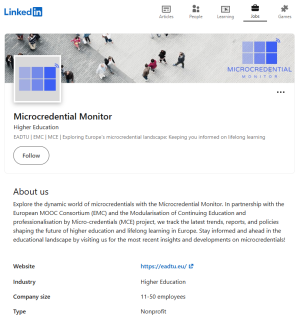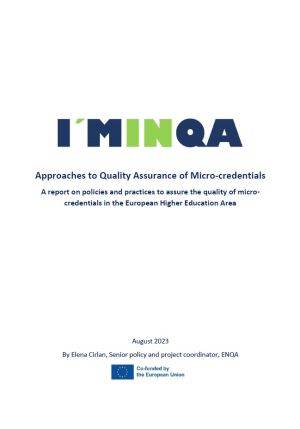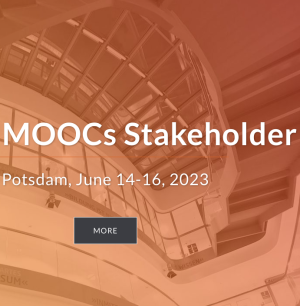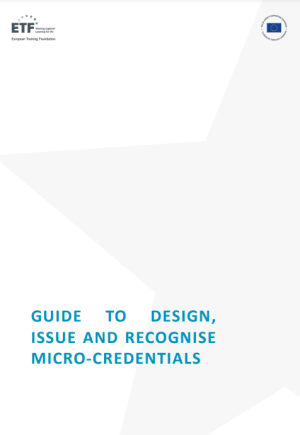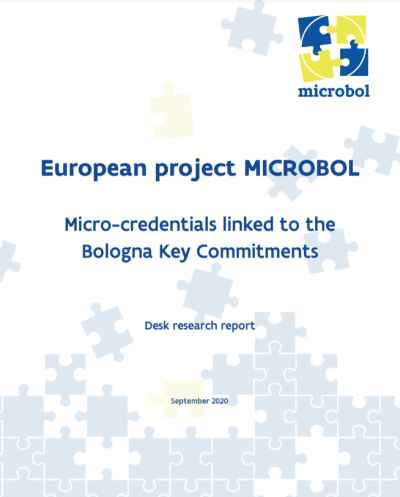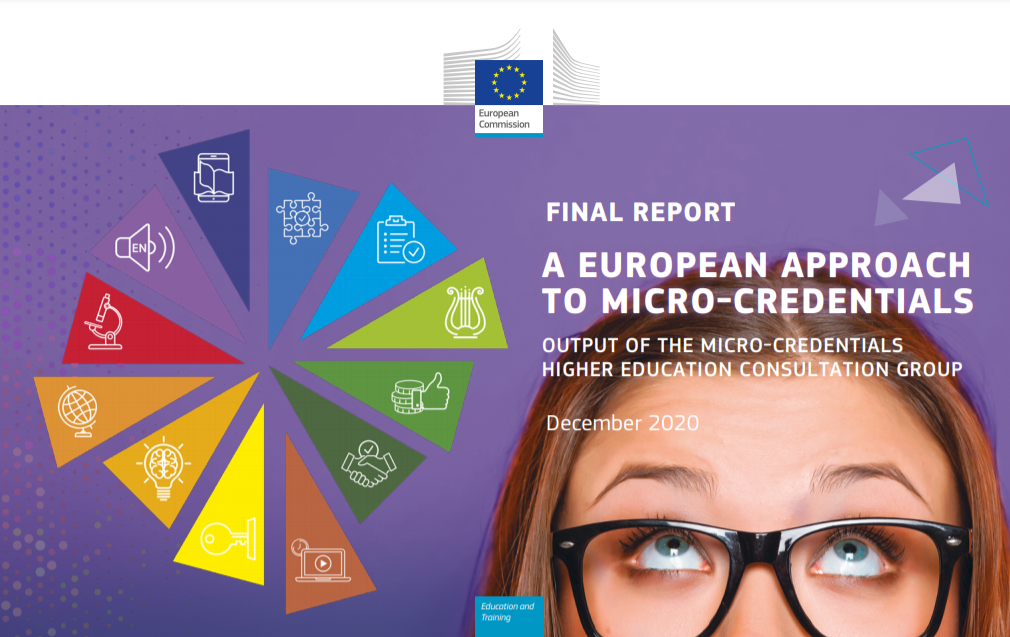
Introducing the Microcredential Monitor
The Microcredential Monitor is a newly launched platform dedicated to providing up-to-date information on micro-credentials within Europe. This initiative supports educators, policymakers, and learners in navigating the evolving landscape of micro-credentials, focusing on policy developments, quality assurance, and innovative practices across Europe.
Stay connected with the Microcredential Monitor for the latest developments and insights.
November 2024
[Event]: Post-COVID Prospects for Massive Open Online Courses - Quarantine boost or backlash?
After a long period of travel restrictions, the EMOOCS organisation is very excited to host the next EMOOCs locally again. The Hasso Plattner Institute for Digital Engineering welcomes you to their beautiful Griebnitzsee campus in Potsdam near Berlin 14-16 June 2023.
Limited participation will also be possible online (i.e. keynotes and talks will be streamed, but no online poster session, no online networking sessions).
Find more information here
Micro-credentials for Lifelong Learning and Employability: Uses and Possibilities
This paper is the first of two planned project publications, aiming to strengthen the evidence base on the potential of micro-credentials. Taking into account the evidence already developed by different bodies with respect to micro-credential innovation (including OECD's recent papers "Micro-credential Innovations in Higher Education (OECD, 2023)" and "Quality and Value of Micro-credentials in Higher Education (OECD, 2021").
2023
Guide to Design, Issue and Recognise Micro-Credentials
This guide aims to accelerate the flexibility and responsiveness of learning systems within the European Training Foundation’s partner countries, by providing guidance on the design, issue and recognition of micro-credentials. It has been prepared as part of ETF’s thematic support for the qualifications systems of ETF partner countries including Türkiye, Algeria, Egypt, Libya, Morocco, Tunisia and countries in the Western Balkans, the Eastern Partnership, the Southern and Eastern Mediterranean, as well as Central Asia.
Characteristics Statement | Micro-credentials
This document is a Characteristics Statement about short credit-bearing courses (or micro-credentials) that would not constitute an award in their own right but which might contribute towards a recognised qualification (macro-credential). It describes the distinctive features of these types of awards.
May 2022
A micro-credential Roadmap: Currency, Cohesion and Consistency
Adopting smaller forms of credentialed learning (such as microcredentials), when embedded in a coherent framework, may deliver more flexible, stackable and transformative learning experiences for both employees and employers. The recommendations as set out in this report indicate that maturing stakeholder understanding of micro-credentials, set against the wider European context, is crucial to developing a future roadmap for Ireland.
26 March 2021
Micro-credentials linked to the Bologna Key Commitments
MICROBOL – Micro-credentials linked to the Bologna Key Commitments – is a two-year project co-funded by Erasmus+ KA3 Support to Policy reform, and more specifically “Support to the implementation of EHEA reforms”. It is linked to the aims of the new Erasmus+ Programme and the European Higher Education Area (EHEA) to increase access to continuous learning for all learners, regardless of their age, background, or experience. The project focuses primarily on micro-credentials provided by higher education institutions or in conjunction with them, but also touches upon those entirely provided by companies or non-profit organisations, the system of ‘open badges’ and other bits of ‘micro’-learning, that might be recognised by higher education institutions.
Read more here
A European approach to microcredentials
This report sets out the results of the hard work of the expert group which was set up to help formulate the role of higher education in a European approach to micro-credentials. The group brought together experts and practitioners working in national authorities, quality assurance agencies, higher education institutions and other relevant stakeholders, representing different expertise from all parts of Europe. The group has contributed to establishing a common definition for micro-credentials, the common characteristics of a European micro-credentials framework, and a roadmap of actions to ensure the take-up, validation and recognition of such courses.
Read more here
Paving the road for the microcredentials movement. ECIU university white paper on microcredentials
A primary challenge, also recognised by the European Commission, is that of ensuring that micro-credentials are broadly recognised. They need to enable learners to complete an array of valued activities, while also fulfilling criteria that can lead to formal recognition of these achievements, analogous to those of learners undertaking macro-credentials. Macro-credential is used here to refer to existing qualifications such as undergraduate degrees and postgraduate masters, which currently serve as the gold standard of university education. Higher education is all about the development and cultivation of higher order knowledge, skills and competences and the ECTS provides a trusted and recognised mechanism to make the learning outcomes, estimated workload and value of a short learning experience visible. The use of ECTS can support shorter courses and our own micro-modules to become recognised and potentially stackable in a transparent way leading to a micro-credential.
Read more here

This project has been funded with support from the European Commission. This website reflects the views only of the author, and the Commission cannot be held responsible for any use which may be made of the information contained therein.
This website is licensed under a Creative Commons Attribution 4.0 International License
Privacy policy EADTU
